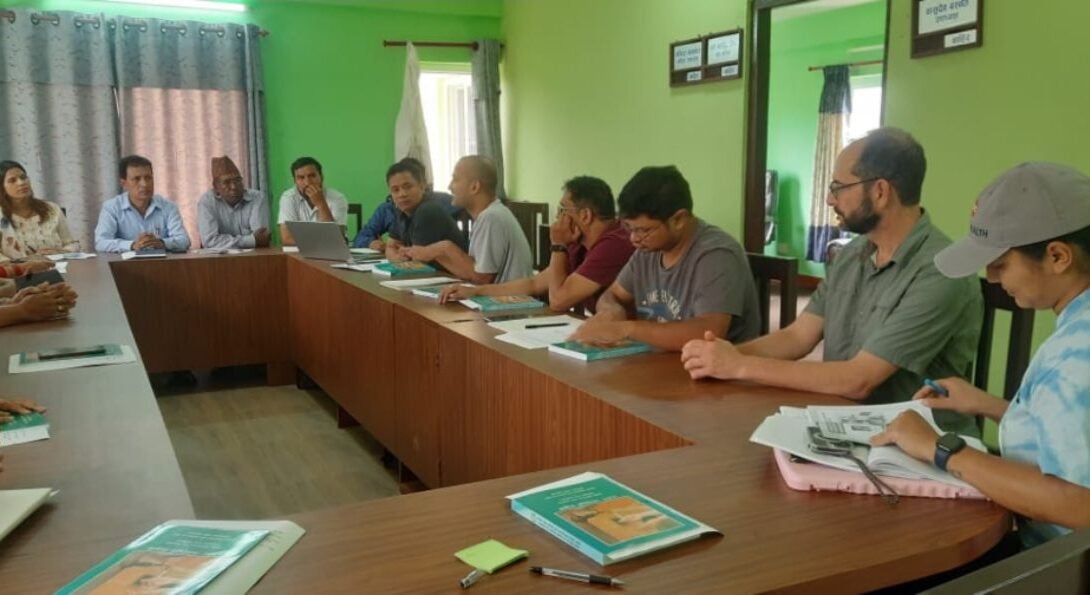Water Quality and Public Health in Nepal

Story Content

This past summer, Dr. Samuel Dorevitch, Professor in the Division Environmental and Occupational Health Sciences, served as a Fulbright Specialist in Kathmandu, Nepal. Over two weeks, he taught water quality and public health at the Research Institute for Bioscience and Biotechnology (RIBB), a research institution dedicated to developing water-quality technology. His work included lectures and field visits to local water treatment systems.
The Fulbright Specialist Program supports Nepalese institutions by funding short-term placements of U.S. experts in various disciplines for two to six weeks. Specialists engage in activities such as training, professional development, curriculum planning, and institutional capacity-building.
Dr. Dorevitch was selected for this prestigious role due to his extensive research on the intersection of water quality and health. Since 2017, he has led studies in rural Kenya evaluating point-of-use water treatment technologies. His work has expanded to address chronic kidney disease, heavy metal contamination, and the use of wastewater monitoring for COVID-19 surveillance.
Furthering the international collaboration in scientific research between the School of Public Health and RIBB, RIBB has requested for Dr. Abhilasha Shrestha, Research Assistant Professor in the Division Environmental and Occupational Health Sciences, to conduct a workshop on real-time polymerase chain reaction (qPCR). The workshop aims to enhance the skills of local researchers and students in molecular biology, focusing on real-time qPCR applications.
______
NOTE: This publication is not an official publication of the Fulbright Program or the U.S. Department of State. The views expressed are entirely those of its author and do not represent the views of the Fulbright Program, the U.S. Department of State, or any of its partner organizations